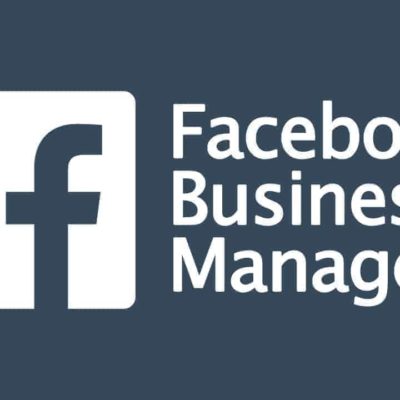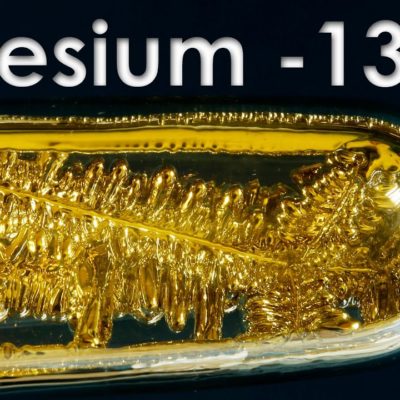
Self Introduction for Interview is Unique: Mastering the Art of Self-Introduction
Self Introduction for Interview for jobs are like snowflakes: no two are the same. Each conversation has its own structure, tone, questions, and person asking them. But every job interview has one thing that is always the same: the feared “self-introduction.”
Few things in a job interview are as nerve-wracking as the first time you’re asked to talk about yourself. This piece will show you how to do a great job of introducing yourself at an interview and leaving a good impression. And if you’d rather learn how to describe yourself in an interview through a video, we have one for you:
Advice on How to Make a Great First Impression
Interviews can change your future and help you deal with problems you’re having right now. They help you get closer to your goals. To do well, you need to believe in yourself and learn from your mistakes. Here are some tried-and-true tips that will help you learn how to introduce yourself:
Earlier than the Interview
1. Plan what you want to say
Every conversation starts with a brief introduction. Still, a lot of people only ask technical questions. To make a good first impression, you need to work on it and gain confidence. Greet the interviewers with confidence and tell them your name and yourself without doubt. Talk loudly and with confidence to show that you value the chance. Depending on your level of expertise, you should talk about your schooling and work experience in your introduction. Try to talk about things that aren’t already on your resume.
2. Research the company and the people who will be interviewing you.
It is very important to know about the company and the specific job. Know what’s expected of you and why you’re the right person for the job. This includes your applicable experience, qualifications, extra skills, and any internships you’ve done. Do some research on the interviewers to find out what they know best. This will help you focus on only the topics and areas you need to study for your test.
3. Wear the right clothes.
Your look is important and can have a big effect on how people see you at first. It shows how serious you are and how ready you are for the job. If you want to make a good impression, don’t wear clothes that are too flashy, revealing, ill-fitting, highly printed, too casual, or wrinkled.
Also Read… duckduckgo-protecting-your-privacy-in-the-digital-age
4. Be clear and make sense.
When you talk about yourself in an interview, you need to be clear and reasonable. Avoid lying or exaggerating, and use real-life examples to back up what you say. Make it clear what you can do for the company, because that’s what managers care most about.
5. Be real and honest.
In an interview, your best friends are being real and honest. Interviewers like it when people are honest and sincere. The more real and honest you are, the faster the interviewers will start to trust you. This can help you make a strong link with someone and give them a great first impression.
6. Watch your body language
If you look worried, talk too quickly, or trip over your words, it can make a bad impression. Stay calm, think before you speak, and make sure your words are clear. Just like you would in any other talk, smile, nod, and shake hands. Don’t change your tone or speed.
7. Keep eye contact.
Don’t look away or act like you don’t care during the interview. Make sure to look at the interviewers when you talk or when they ask you questions. It shows that you’re paying attention and care about what’s being said.
8. Always act like a pro.
Respect the process of the conversation and act professionally at all times. Pay attention to what you wear and how you act. Be polite to the interviews and always be on time. Interviewers have a lot of knowledge and pay attention to everything.
After the Meeting
An interview works both ways. Take this chance to find out more about the job and the company:
9. Prepared to ask more questions
Get questions ready ahead of time to satisfy your interest. Ask about specific projects, methods, tools, software, or programs that have to do with the job (if they haven’t already been mentioned). Ask about training and anything else that might be important.
10. Keep in touch.
Send a thank-you letter to the HR staff to let them know you appreciate their work. Show that you are interested in knowing the results, whether they are good or bad. Keep your follow-up message short and to the point, but don’t send too many questions.
Tips on How to Introduce Yourself in an Interview
Your introduction of yourself is an important part of the interview because it affects how employers see you. It lets the interviewer judge not only your skills, but also your personality and how well you show yourself. Here are some great ways to answer the “Tell us about yourself” question.
Step 1: Greet the people interviewing you
Start with a warm welcome when you talk about yourself. Thank the person who invited you to the interview. Start by introducing yourself and saying where you’re from. For example, you can say, “My name is Leonardo, and I’m from San Francisco.”
Step 2: Talk about where you went to school.
Briefly talk about where you went to school, especially if you just graduated. Name your school, college, or university, and the degree you have earned. You can also include your Cumulative Grade point average (CGPA), if it is appropriate. Mention any projects you’ve finished or qualifications you have that are relevant to the job.
Step 3: For Professionals with Lots of Experience
If you’re an experienced worker, after you say hello and thank you, you can go right into talking about your most recent job. Include the name of the company you work for, your present position, the length of time you’ve been there, your job duties, and any major accomplishments. Back up your claims with proof to show what you’ve done, like saying that you were responsible for a 38% increase in customer satisfaction over a year.
Step 4: Talk about your interests.
Don’t be afraid to talk about what you love and what you do for fun. Fresh graduates can talk about their extracurricular activities, and professionals with more experience can talk about their hobbies outside of work. Your interests and hobbies tell a lot about who you are.
Step 5: Write a strong ending sentence
Finish your introduction of yourself with a strong statement. Tell them why you want the job, how it fits in with your work goals, and how excited you are to take on hard tasks. Showcase your most important skills and explain how you plan to use them to help the group. Leave a good impression on the reporter by saying, ”Thank you, that’s all about me.”
How to Introduce Yourself in a Professional Way
The way you talk about yourself should be polished and efficient. Here are some examples of phrases that all candidates could use:
Sample 1: “Hello, my name is [Name], and I’m glad to be here today. I’m glad to have the chance to talk about how I’m qualified for the [Position/Job Title] role.”
Sample 2: “With [Number] years of experience in [Field], I’ve been able to build up a strong set of skills that match the needs of this job. I’m excited to bring my expertise to this role and to the company as a whole.”
Sample 3: ”I am highly self-motivated [Position/Job Title], and I was able to consistently deliver results in my previous roles. My proficiency in [Skills/Qualifications] shows my commitment to continuous improvement and success.”
Sample 4: “I agree with [Goal/Value] as one of the company’s values, and I’m excited to join a team that shares my desire to make a positive difference in the industry.”
Sample 5: ”As a [Position/Job Title], I put attention to detail and solving problems at the top of my list of priorities. My strong work ethic and communication skills help me work well with others and get good results.”
Sample 6: “Based on my qualifications and experience, I am confident that I am an excellent candidate for this job. I am eager to learn more about the company’s vision and goals and how I can contribute to its success.”
What you should talk about in your self-introduction
Your Information: Tell us your name, where you’re from, and any other information about yourself that is important. Don’t include too many irrelevant details, like what you did in sports or the arts when you were in school, because that can make a bad impression.
Qualifications: List your relevant education, certifications, and any other training that has prepared you for the job. Mention the number of years you’ve been certified and why you did it.
Work Experience: Talk about your relevant work experience, including your responsibilities, accomplishments, and any big projects or efforts you’ve worked on.
Interests outside of work: List any hobbies, charity work, or other activities that show who you are, what you value, and how you live your life.
Your Values: Talk about your personal and professional values and how they fit with the company’s goal and culture.
Plans for the future: Talk about your long-term work goals and how this job fits into your plans for professional growth.
How to Talk About Yourself in an Interview: Examples
Some examples for newcomers
Here are some examples of first-time addresses. Change the information to fit your area of knowledge:
1st Sample
“Hello, my name is Emma William. I have a B. Tech. in Biotechnology from IIT, Kanpur. During my studies, I focused on microbial techniques and bacterial fermentation, and I did experiments with the help of my supervisor. I’m passionate about learning and improving, which is why I’m applying for the Microbiological Project Assistant position.”
Example 2:
“Thank you for considering me for an interview. My name is Harry Grint, and I have an M. Tech. in microbiology from Massachusetts University. My dissertation projects and internships focused on antimicrobial resistance, and some of my research has been published. I’m also interested in virology, and I’ve taken a specialization course in that area.”
Samples for Applicants with Experience
Candidates with a lot of experience and a good track record can use the following examples as a guide:
1st Sample
”Hello, my name is Rita Roy, and I’ve been an educator and researcher for almost ten years. I started my career with an online education platform, where I helped over 1000 students do well on national-level competitive exams. After getting my PhD, I became an assistant professor at Marymount University in Los Angeles. I think I’m a good fit for the position of Professor and would like to apply.”
Example 2:
“Hello, my name is Christine Fernandez, and I’m a content writer with two years of experience. I was a team lead at Infinity Inc. for two years, where I worked as a content developer. I also have certifications in SEO and content writing, and I’ve edited more than 50 articles. I’d like to improve my skills at your company and help the content marketing department on both online and offline platforms.”
How to Introduce Yourself to an Interviewer
Keep in mind that the interviewer is mostly interested in your work. In a job interview, they look at your confidence, social skills, and ability to communicate to see if you’re a good fit for the company and the job. Keep your greeting short and businesslike. It shouldn’t go on for more than a minute at most.
Things to stay away from when introducing yourself
If you want to make a good first impression, don’t do these things when you introduce yourself:
List Your Skills: Instead of making a list of your skills, give examples of how you use them.
Reciting Your Whole Resume: Keep your opening focused and to the point. Don’t put your whole resume on your resume.
Thinking Quickly: Plan your welcome ahead of time so you don’t forget important details.
Nervousness: Stay calm and talk about professional skills or experiences that will help the company.
Don’t repeat the same information on your resume. Instead, give examples of relevant tools, methods, software, extracurricular activities, learning opportunities, and hobbies.
Unrelated Skills: Exclude skills that aren’t relevant to the job you’re applying for.
How long should your ”About Me” paragraph be?
During a job interview, you should talk about yourself in a way that is both complete and brief. It should last no more than two or three minutes at most. This provides enough time to cover key points about yourself and your qualifications while leaving room for interviewers to ask questions and engage in meaningful conversation.
How important it is to be able to talk to people
In any job interview, you need to be able to talk to people well. They help you say what you want to say, understand what the interviewer is asking, and show that you are right for the job. Strong speaking skills can make you stand out from other candidates and make it more likely that you’ll get the job.
Here are some important parts of being able to communicate:
Verbal Communication: Use your voice effectively to convey your message with the right tone, volume, and clarity. Speak clearly and confidently.
Nonverbal Communication: Pay attention to your body language, facial expressions, and gestures. Maintain eye contact, sit up straight, and avoid distracting behaviors.
Active Listening: Listen actively, ask for clarification when needed, and respond thoughtfully to the interviewer’s questions.
Concise and Clear Messaging: Keep your answers concise and directly address the question. Avoid rambling or going off on tangents.
Empathy and Interpersonal Skills: Show empathy and the ability to relate to others. These skills are essential for teamwork and collaboration.
Cultural Awareness: Demonstrate an understanding of cultural differences, especially in a globalized work environment.
By mastering these communication skills, you can enhance your chances of making a positive impression in a job interview and increase the likelihood of being selected for the position.
Conclusion
Customize your self-introduction based on your qualifications, experience, and accomplishments. Practice your delivery and take note of key points before your next campus placement interview. Practice will help you remain confident on the interview day. Remember to maintain eye contact, stay at ease, and speak in a natural, conversational tone. Interviewers understand the pressure candidates face and tend to overlook minor errors or lapses.
Whether your goal is to break into Artificial Intelligence, Machine Learning, Cybersecurity, Data Science, Digital Marketing, or DevOps, Simplilearn’s industry-recognized skill-based learning curriculum can help you acquire the most in-demand skills today. Explore and enroll today!
FAQs
What information should I include in my introduction?
Your introduction should include your name, place of origin, relevant personal information, educational background, qualifications, work experience, outside interests, values, and future plans. Keep it concise, focusing on information related to the job.
How long should my introduction be?
A good self-introduction should last about 1 to 2 minutes. It should provide a brief overview of your qualifications and set a positive tone for the rest of the interview.
How do you introduce yourself more professionally?
To introduce yourself professionally, start with a polite greeting, state your full name, mention your educational background and relevant work experience, highlight key skills and strengths, briefly share your career objective, and express gratitude for the opportunity.
How do you introduce yourself to a recruiter?
When introducing yourself to a recruiter, be polite and confident. Start with a greeting, state your name, and briefly mention your current job title or area of expertise. Highlight your relevant experience and skills that match the job requirements. Mention any significant achievements or certifications. Keep it concise and professional, expressing your interest in the position and the company.
What is the best answer to ‘Tell me about yourself’?
The best answer for “Tell me about yourself” is a concise and focused summary that highlights your relevant work experience, key skills, and accomplishments. Begin with a brief introduction of your name and current role, then provide a concise overview of your professional background, mentioning a few career highlights that align with the job you’re applying for. Avoid personal details and keep the response professional and job-oriented, setting a positive tone for the rest of the interview.
Also Read…. exploring-the-power-of-jira-a-comprehensive-guide-to-effective-work-management











